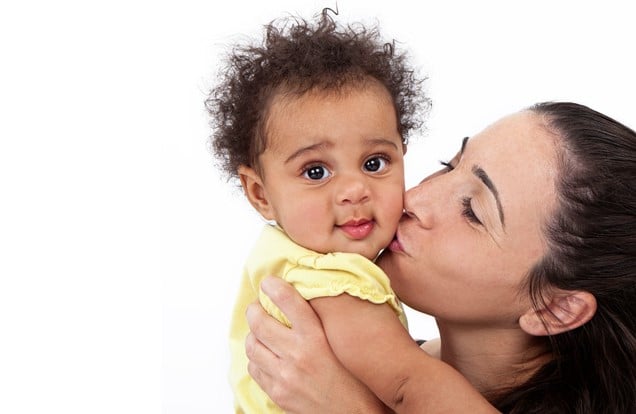Are you trying to choose a name that represents your family’s multicultural heritage?

We’ve all heard Canada be called a cultural “mosaic,” a place where people of different cultures and backgrounds come together. This blending of different cultures and traditions is a beautiful thing, and that is especially true when the time comes to choose a name for a baby.
In many families, each parent comes from a different background—or more than on—and it can be challenging to make sure that a baby’s name honors and reflects his or her whole heritage.
Here are 3 things to keep in mind when choosing a name for the newest member of your multicultural family:
1) Forget about “matching” – go for balance and flow
Prospective parents sometimes worry about choosing a first name for a baby that matches or doesn’t clash with the ethnic background associated with the baby’s last name. But the aural flow of a name and its meaning should be more important than old-fashioned ideas of two names that “go” together.
If cultural heritage is important to both a child’s mother and father and the child will be brought up in both cultures, then there is no reason why the child’s name shouldn’t reflect both. That means if, for example, the child will have the father’s surname, then the mother’s heritage (or one of them) should be represented in the child’s first name (and vice versa).
Salvatore Ling or Saoirse Lahari might not seem intuitive, but they’re lovely. It’s a brave new world out there! Names should reflect it.
2) People will learn to pronounce your child’s name properly (And don’t let them off the hook if they don’t)
It’s understandable that parents wouldn’t want to saddle their kid with a name that will require constant correction or one that might get them teased. But the thing is, if there is a name you love that honors your family or heritage, no one else’s issues with it should stand in your way.
One of the most common worries is that the child’s future teachers might have difficulty pronouncing the name at first. Well, tough cookies. Teachers are there to model respectful behaviors and a willingness to learn for their students!
Any teacher worth his or her salt will learn to pronounce a name properly, even if it is one that gives them trouble initially. A refusal to learn to refer to someone properly is bigoted and rude. We can all do (and demand) better than that!
As for kids on the playground, well, there is no fool-proof name when it comes to teasing is there? That said, I predict that there will be a lot more name diversity on the playground for this generation of kids, than for their parents.
3) Short forms, short forms, short forms
All that said, one way to make it easier for your child as he/she grows up (and to make it easier, say, for the child’s grandparents, whose ability to pronounce the name really is important) is to give him or her a name with an easy-to-pronounce short form that crosses cultural barriers.
Of course, there are no “universal” names, but there are sounds that are common to a different culture (think Lee/Leigh; Alex/Aleks; Sam/Sami, etc).
The bottom line is, as always, choosing the name feels right for your unique family.









